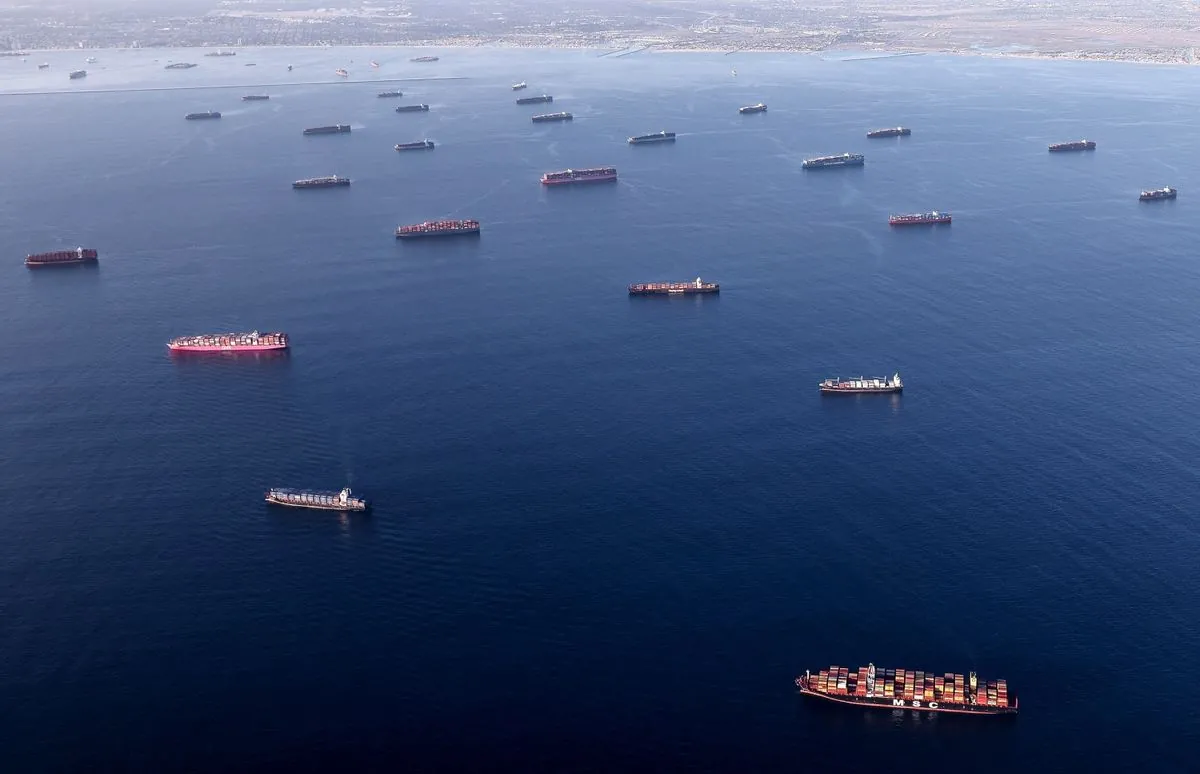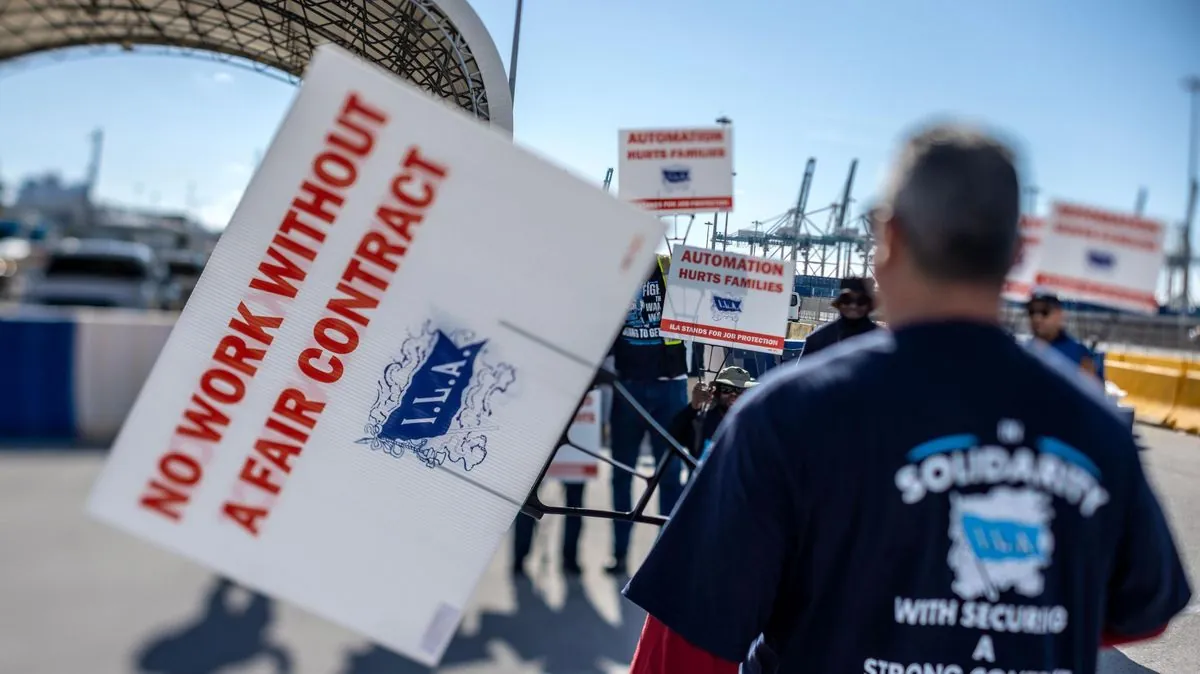East Coast Ports Paralyzed: ILA Strike Threatens $5 Billion Daily Economic Hit
ILA dockworkers strike at major US ports, disrupting shipping. Biden urges fair contract, monitors price gouging. Businesses worry as strike could cost $5 billion daily. Union demands higher wages, automation protection.

The International Longshoremen's Association (ILA) has initiated a strike at major US ports, causing significant disruptions to shipping operations along the East Coast and Gulf of Mexico. This labor action, which began on October 1, 2024, marks the first major stoppage by the ILA since 1977, affecting 36 ports from Maine to Texas.
President Joe Biden has responded by urging port employers to offer a "strong and fair" contract to the striking workers. The administration is also monitoring potential price gouging activities by foreign ocean carriers. Biden emphasized the contributions of longshoremen during the pandemic, stating:
"Foreign ocean carriers have made record profits since the pandemic, when Longshoremen put themselves at risk to keep ports open. It's time those ocean carriers offered a strong and fair contract that reflects ILA workers' contribution to our economy and to their record profits."
The strike's impact on the US economy is substantial, with JP Morgan analysts estimating a daily cost of approximately $5 billion. The affected ports handle about 26% of the world's container traffic, highlighting the strike's global significance. The Port of New York and New Jersey, the largest container port on the East Coast, is among those affected, along with other crucial facilities like the Port of Houston and the Port of Baltimore.

Harold Daggett, the ILA's leader, has stated that the union is prepared for a prolonged strike if necessary. The union's demands include a $5 per hour raise for each year of a new six-year contract and measures to protect jobs from automation projects. This stance reflects the ongoing tension between technological advancements in port operations and job security concerns.
The strike has already caused significant backlogs, with Everstream Analytics reporting that more than 38 container vessels were backed up at US ports by October 1, compared to just three on September 29. This disruption affects a wide range of industries, from food imports to automobile shipments.
The National Retail Federation has called on the Biden administration to intervene, citing potential "devastating consequences" for the economy. However, Biden has repeatedly stated he will not use federal authority to halt the strike, a power granted by the Taft-Hartley Act of 1947.
Despite the strike's potential impact, the U.S. Department of Agriculture does not anticipate significant changes to food prices or availability in the near term. Retailers, accounting for about half of all container shipping volume, have implemented backup plans to minimize disruptions as they prepare for the winter holiday sales season.
The current situation highlights the complex interplay between labor rights, technological advancement, and economic stability in the maritime industry. As negotiations continue, the outcome of this strike could have far-reaching implications for the future of port operations and labor relations in the United States.


































